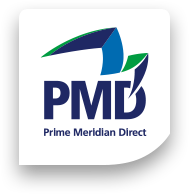Your New Year’s resolutions might be a long list already, but adding these budgeting tips will make you feel in control of your finances and life this year.
It can be frustrating when you feel like your budget won’t stretch until your next payday, especially if you’re hoping to put aside some money for those things you really want – whether a new pair of shoes or a holiday with the family. We share some budgeting tips and how to save more to put you in the driver’s seat of your financial goals this year.
First things first: what exactly is a budget?
If you’ve never created a budget, don’t worry. It does not take a mathematician to come up with one. A budget is effectively a guideline that categorises your expenses and income. It will include your monthly recurring fixed expenses, like your cell phone contract debit order that will stay the same every month.
Your budget should also include day-to-day spending like groceries, personal care items, and petrol, which might differ from month-to-month. Then, you should also budget for long-term savings, like saving for retirement and see how much you can set aside every month.
Your budget should also account for unexpected expenses with an emergency fund, for example, if your car needs a service or repairs.
1. Start budgeting online with budget apps
Does it sound too overwhelming to track your spending? Staying on top of your budget does not have to be a headache.
These days, clever apps like 22seven offer simple budgeting solutions and help you track your progress. It syncs with your bank accounts, giving you a picture of where your money is going. You then categorise each transaction into a relevant category. For example, your monthly Netflix subscription fee could be categorised as a recurring entertainment expense.
Ideally, you should follow the 50/30/20 budget guideline. This helps you divide your income into three categories, namely your needs, wants and savings. You should aim to spend 50% on needs, 30% on wants, and 20% of your income on savings.
An example of needs would be your rent, groceries, utilities like electricity, etc. On the other hand, wants would be your TV streaming services, eating out and other entertainment,
2. Pay off debt
You’re likely wasting a lot of money on paying interest on your credit card debt, as well as any other credit accounts. Spend the money to get rid of debt now, and you will save a lot more in the long run.
Then, going forward, stick to using your debit card for all purchases and keep your credit card for emergencies.
3. Dilute your cleaning supplies
Practice budget cutting by diluting your cleaning supplies a bit and seeing how much further you get before needing new supplies. For example, if you add some water to your kitchen counter cleaner, it will still work just as well. You can also buy refillable products and bulk specials to save in the long run.
4. Only buy fruit and veg in season
When buying fruit and vegetables, look for those in season, as they will be much more affordable. Furthermore, they will also be more nutritious and fresher as they will likely be sourced locally and not transported from elsewhere.
5. Pack your own lunch
It can be tempting to grab a takeaway sandwich or coffee from the office cafeteria or nearest shop. However, it all adds up! You’ll be surprised how much money you can save if you take your own lunch and just make coffee at the office instead of getting it from a café.
6. Switch off your car engine in traffic
Back to work, back to sitting in traffic? All that time spent idling will eat into your petrol budget. Instead, crack your window and switch off the engine to save on petrol whenever traffic is not moving.
7. Skip the alcohol and cold drinks
Alcohol and cold drinks are expensive! Sugar tax is at an all-time high, which means these choices cost you big bucks. Instead, consider buying a soda stream to fizz tap water and add concentrated syrups, or simply stick with coffee, tea and water as your preferred drinks. If you want a cooldrink, you can also buy juice and dilute it with water.
8. Bulk up meals with rice or pasta
Try bulking up your meals with healthy yet budget-friendly carbs like brown rice and wheat pasta for fuller tummies and plates but less moolah. Whether you add it as a side dish or mix it into a stir-fry, it will help stretch your grocery budget.
9. Reconsider your monthly subscriptions
Do you really need Netflix, Prime, Disney and Showmax? List all your monthly subscriptions, how often you use them, and which ones you could potentially cut.
10. Get a new car insurance quote
Fixed costs like your car insurance premium can really make you feel like your entire salary is gone as soon as it comes into your account. However, the reality is that you can shop around for the best car insurance quote.
Many South Africans simply settle for the first insurance provider they come across and do not have any idea of what else is out there. However, the best car insurance providers in South Africa will try to work with your budget.
Budgeting is an ongoing exercise
The reality is that your budget will change all the time. Therefore, it’s important to regularly assess how much you’re spending, where you can cut, and where you can spend more. Apps like 22seven allow you to check in daily, weekly or monthly (whichever you prefer) to see whether you’re still on track.
Get a cheaper car insurance quote today
At Prime South Africa, we make it our mission to make car insurance affordable for every South African. We believe that if you drive a car, you deserve the peace of mind car insurance provides. Contact us today, and let’s see how much we can save you on your monthly car insurance premium!
Disclaimer
This article provides general information to help you understand some budgeting ideas. However, you should always talk to a certified financial advisor about your budget, savings, retirements and more.
Always remember that buying car insurance should be done with much thought and from a certified financial services provider.
Contact us today if you want more information about getting affordable, comprehensive car insurance with fixed premiums* and a reduce-to-zero excess*. *T&Cs apply.








